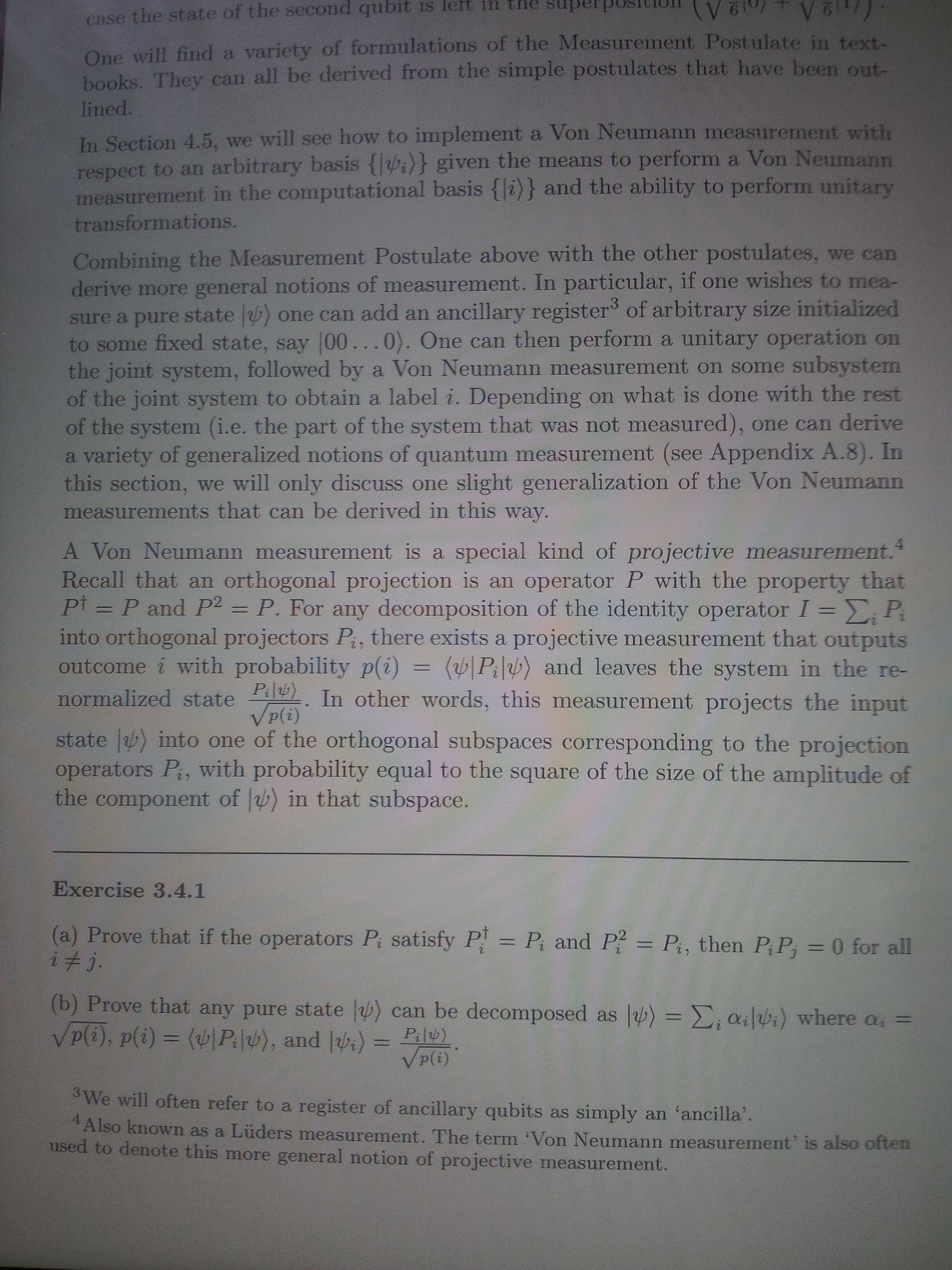
I would like to complete the following exercise:
Prove that if the operators $P_i$ satisfy $P_i^{\dagger}$ = $P_i$ and $P_i^2$ = $P_i$, then $P_iP_j=0$ for all $i\neq j$.
From $P_i^2 = P_i$ I conclude that $P_i(P_i - \mathbb{I}) = 0$, where $\mathbb{I}$ is the identity matrix. So $P_i$ is either $0$ or $\mathbb{I}$ but this is wrong because I think there should be more such operators than those two trivial ones...
Could you please point out my mistake and provide the legit proof for the excercise?
